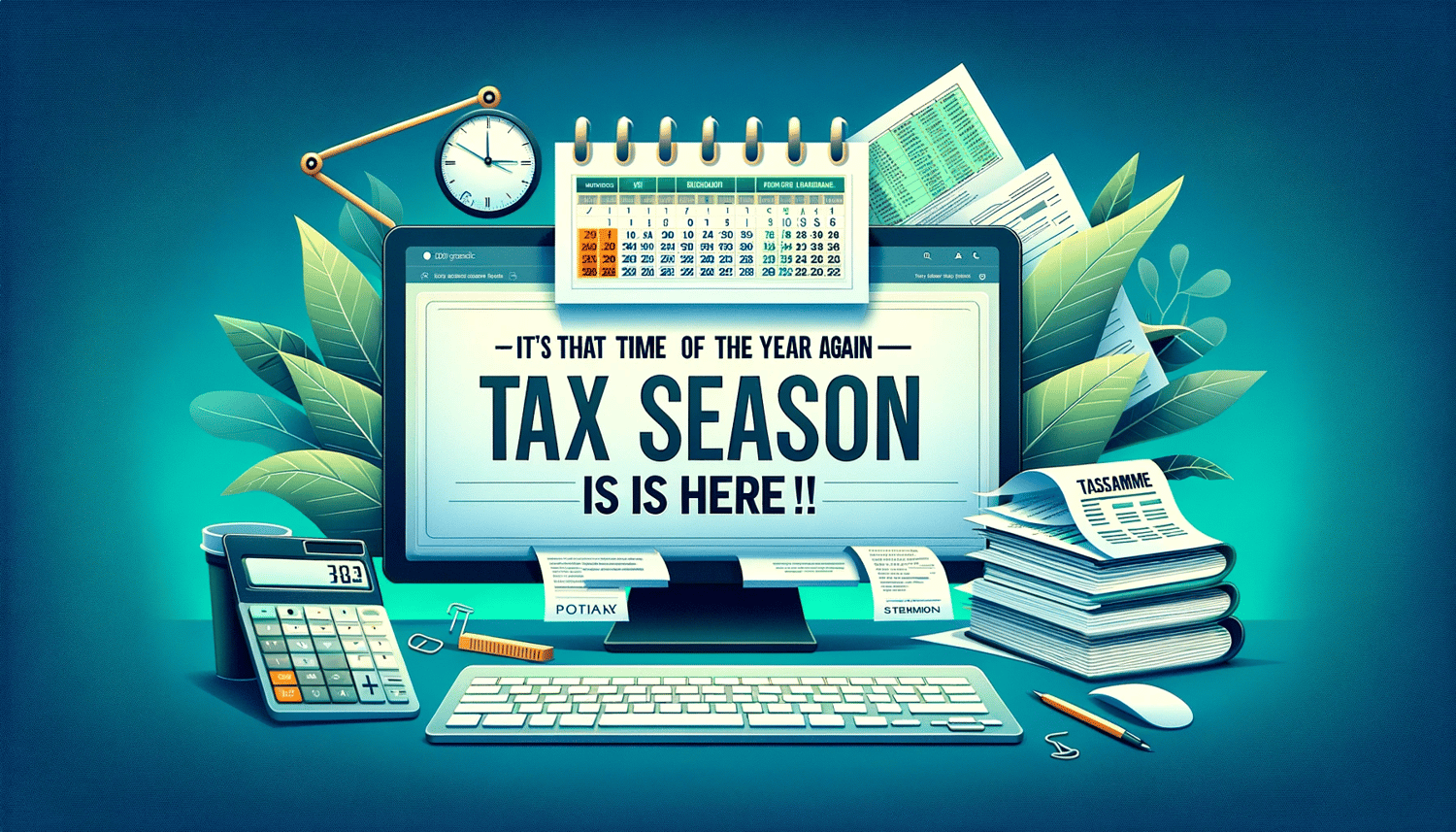Preparing to file your federal income tax return can be a breeze with just a bit of planning ahead. By planning ahead, you can file an accurate return and avoid delays, ensuring a smooth process and speedy tax refund.
Effortless Tax Filing: Tips to Get You Started
Use online account to securely access the latest information available about your federal tax account and see information from your most recently filed tax return.
You can:
- View your tax owed, payments, and payment plans
- Make payments and apply for payment plans
- Access your tax records
- Sign a power of attorney authorizations electronically from your tax professional
- Manage your communication preferences from the IRS
Gather and organize your tax records.
Organized tax records make preparing a complete and accurate tax return easier. It helps you avoid errors that lead to delays that slow your refund and may also help you find overlooked deductions or credits.
Wait to file until you have your tax records including:
- Forms W-2 from your employer(s)
- Forms 1099 from banks, issuing agencies and other payers including unemployment compensation, dividends, pension, annuity or retirement plan distributions
- Form 1099-K, 1099-MISC, W-2 or other income statement if you worked in the gig economy
- Form 1099-INT if you were paid interest
- Other income documents and records of digital asset transactions
- Form 1095-A, Health Insurance Marketplace Statement, to reconcile advance payments or claims Premium Tax Credits for 2022 Marketplace coverage
- IRS or other agency letters
- CP01A Notice with your new Identity Protection PIN
Notify the IRS if your address changes and notify the Social Security Administration of a legal name change.
Remember, most income is taxable. This includes:
- unemployment income,
- interest received,
- income from the gig economy, and
- digital assets.
Check your Individual Tax Identification Number (ITIN).
An ITIN only needs to be renewed if it has expired and is needed on a U.S. federal tax return. If you do not renew an expiring or expired ITIN, the IRS can still accept your tax return, but it may delay processing it or delay tax credits owed to you, such as the Child Tax Credit and the American Opportunity Tax Credit, which can impact when you get your tax refund.
If your ITIN wasn't included on a U.S. federal tax return at least once for tax years 2020, 2021, and 2022, your ITIN will expire on December 31, 2023.
As a reminder, ITINs with middle digits 70, 71, 72, 73, 74, 75, 76, 77, 78, 79, 80, 81, 82, 83, 84, 85, 86, 87, or 88 have expired. In addition, ITINs with middle digits 90, 91, 92, 94, 95, 96, 97, 98, or 99, IF assigned before 2013, have expired. If you previously submitted a renewal application and it was approved, you do not need to renew again.
The IRS processes requests in the order they were received. Your patience is appreciated. You will be notified once your ITIN is assigned or if additional information is needed.
Make sure you've withheld enough tax.
Consider adjusting your withholding if you owed taxes or received a large refund when you filed. Changing your withholding can help you avoid a tax bill or let you keep more money each payday. Credit amounts may change each year, so visit IRS.gov and use the Interactive Tax Assistant to identify whether you qualify for any tax credits that may call for a withholding adjustment. Life changes – getting married or divorced, welcoming a child, or taking on a second job - may also mean changing withholding.
Use the Tax Withholding Estimator to help you determine the right amount of tax to have withheld from your paycheck. This tool on IRS.gov will help determine if you need to adjust your withholding and submit a new Form W-4 to your employer.
Consider estimated tax payments. If you receive a substantial amount of non-wage income like self-employment income, investment income, taxable Social Security benefits and in some instances, pension and annuity income you should make quarterly estimated tax payments. For estimated tax purposes, the year is divided into four payment periods, with the last payment due in mid-January.
Log in to your online account to make a payment online or go to IRS.gov/payments.
Get banked to speed tax refunds with direct deposit
The fastest way for you to get your tax refund is by filing electronically and choosing direct deposit. Direct deposit gives you access to your refund faster than a paper check. Get your routing and account number by signing into your online banking account or contacting your bank.
Don't have a bank account? Learn how to open an account at an FDIC-Insured bank or through the National Credit Union Locator Tool. If you are a Veteran, see the Veterans Benefits Banking Program (VBBP) for access to financial services at participating banks.
Prepaid debit cards or mobile apps may allow direct deposit of tax refunds. They must have routing and account numbers associated with them that can be entered on your tax return. Check with the mobile app provider or financial institution to confirm which numbers to use.
Direct deposit also avoids the possibility that a refund check could be lost or stolen or returned to the IRS as undeliverable.
What's new and what to consider the next time you file.
More taxpayers may receive a Form 1099-K
It’s important to know that if you’re getting payments running a small business, selling things online, or for doing a side hustle, that money should be reported as income. And if it’s more than $600 in a year through payment apps and online marketplaces, you and the IRS could receive a Form 1099-K, typically by the end of January the next year.
- What’s taxable?
It’s the profit from these activities that’s taxable income. The Form 1099-K has the gross, or total, amount of payments you got. You can use it and other records to figure out the actual taxes you owe on any profits.
Remember that all income, no matter the amount, is taxable unless the tax law says it isn’t – even if you don’t get a Form 1099-K.
- What’s not taxable?
You shouldn’t receive a Form 1099-K for personal payments, including money received as a gift and for repayment of shared expenses. That money isn’t taxable. To prevent getting an inaccurate Form 1099-K next filing season, note those payments as “personal,” if you can.
- Good recordkeeping is key
Be sure to keep good records because it helps you when it’s time to file your tax return. Don’t forget to keep track of expenses, what you’ve sold and what you’ve been paid for services throughout the year. And it’s a good idea to keep business and personal transactions separate to make it easier to figure out what you may owe.
For more information on what to do if you get a Form 1099-K in error or the information on your form is incorrect, visit IRS.gov/1099k.
Changes that may affect your tax refund
Life events, such as purchasing a home, going to college or losing a job, may make you eligible for certain tax benefits. Other circumstances, such as getting married or divorced, welcoming a child or experiencing the death of a spouse or a dependent you claim, could also affect your tax benefit eligibility and filing status. These changes could mean you qualify for tax credits like the Child Tax Credit (CTC), the Earned Income Tax Credit (EITC) and the Child and Dependent Care Credit.
- For 2023, the CTC is worth $2,000 for each qualifying child. A child must be under age 17 at the end of 2023 to be a qualifying child.
- For the EITC, eligible taxpayers with no qualifying children may get $600 for the 2023 tax year.
For the Child and Dependent Care Credit, taxpayers may receive up to 35% of their employment expenses. Visit Credits and Deductions for more details.
Energy-related credits and deductions
Clean vehicle tax credit. Review the changes under the Inflation Reduction Act of 2022 to see if you qualify for the new electric vehicles purchased in 2022 or before or the new clean vehicles purchased in 2023 or after credit.
Home energy tax credit. If you make energy improvements to your home, tax credits are available for a portion of qualifying expenses. The credit amounts and types of qualifying expenses were expanded by the Inflation Reduction Act of 2022.
Avoid refund delays and understand refund timing
Many different factors can affect the timing of your refund after we receive your return. Although the IRS issues most refunds in less than 21 days, the IRS cautions taxpayers not to rely on receiving a refund by a certain date, especially when making major purchases or paying bills.
Identity theft and refund fraud. Some returns may require additional review and may take longer. The IRS, along with its partners in the tax industry, continues to strengthen security reviews to help protect against identity theft and refund fraud.
IRS cannot issue EITC and ACTC refunds before mid-February. Refunds for people claiming the Earned Income Tax Credit (EITC) or Additional Child Tax Credit (ACTC) can't be issued before mid-February. The law requires the IRS to hold the entire refund − even the portion not associated with EITC or ACTC.
Returns requiring manual review. Some returns, filed electronically or on paper, may need manual review delaying the processing if our systems detect a possible error, the return is missing information, or there is suspected identity theft or fraud. Some of these situations require us to correspond with taxpayers, but some do not. This work does require special handling by an IRS employee so, in these instances, it may take the IRS more than the normal 21 days to issue any related refund. In cases where the IRS is able to correct the return without corresponding, the IRS will send an explanation to the taxpayer.

Internal Revenue Service. (2023, November 13). Get Ready for Tax Season 2024. Retrieved from https://www.irs.gov/newsroom/tax-season-rapidly-approaching-get-ready-now-to-file-2023-federal-income-tax-returns-in-early-2024


Comments ()